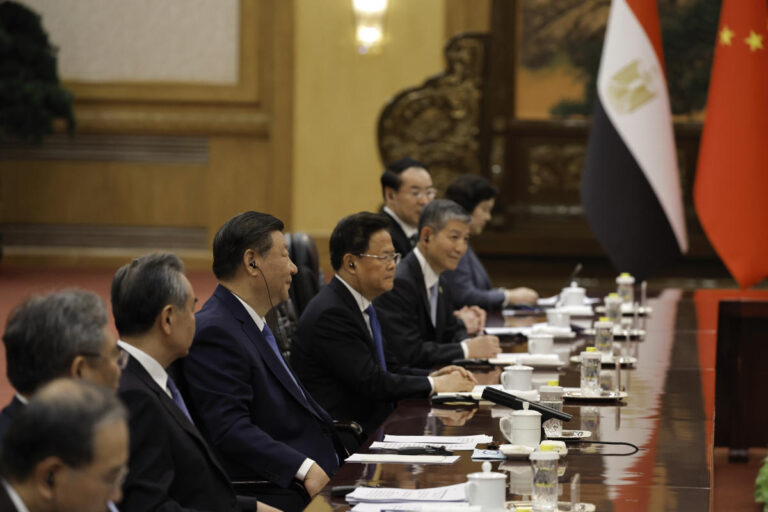TAIPEI, Taiwan (AP) — In Chinese President Xi Jinping He called for an international peace conference to focus on the war between Israel and Hamas and promised more humanitarian aid at the start of a summit with Arab leaders in Beijing on Thursday.
“As the war escalates and causes great suffering, justice cannot be lacking and the two-state solution cannot be undermined,” Xi said in his opening speech at the Forum on China-Arab States Cooperation.
He called on Arab countries to deepen cooperation in areas such as trade, clean energy, space exploration and healthcare.
The summit, attended by leaders of Egypt, the United Arab Emirates, Bahrain, Tunisia and other countries, was expected to focus on expanding trade ties with China and security concerns linked to the war between Israel and Hamas.
Beijing and Arab countries are backing the Palestinians in the conflict. Israel has faced growing international condemnation after a weekend attack in the southern Gaza city of Rafah that killed at least 45 people. Overall, the Palestinian death toll in the war has risen to more than 36,000, according to the Gaza Health Ministry.
China has long supported the Palestinians and criticized Israel over settlements in occupied territories. China has not criticized the first Hamas attack on Oct. 7, which killed about 1,200 people and other countries, including the United States, have called it a terrorist act. But it is strengthening economic ties with Israel.
“China’s priorities in the region are primarily economic,” said Maria Papageorgiou, a lecturer in politics and international relations at the University of Exeter. “China wants to continue the momentum it has built with Gulf states in recent years and expand its investments, particularly in trade, technology (5G networks) and other cyber initiatives.”
China also wants to present itself as an alternative to the West and a more reliable partner in the region that doesn’t interfere or pressure countries in their internal affairs, Papageorgiou said.
Also attending the forum was Egyptian President Abdel Fattah el-Sisi, who met with Xi on Wednesday. The two leaders signed a series of cooperation agreements in areas including infrastructure, technology and food imports aimed at strengthening ties between the two countries.
China has invested billions of dollars in Egyptian national projects, such as the Suez Canal Economic Zone and the New Administrative Capital East of Cairo. Investment between Egypt and China is expected to reach about $14 billion in 2023, compared with $16.6 billion in 2022, according to the Egyptian Bureau of Statistics.
The forum will also be attended by Tunisian President Kais Saied, UAE President Sheikh Mohammed bin Zayed Al Nahyan and Bahrain’s King Hamad.
The Forum on China-Arab States Cooperation was established in 2004 as a formal dialogue mechanism between China and Arab countries.
China is Tunisia’s fourth-largest trading partner after Germany, Italy and France. Beijing has funded hospitals and sports facilities in the country, and Chinese companies are undertaking the construction of strategic infrastructure such as bridges and a deep-water Mediterranean port.
The UAE also has extensive and growing economic ties with China and has come under criticism from the United States over the alleged construction of Chinese military facilities in Abu Dhabi.
In addition to expanding trade ties in the Middle East, China is increasingly seeking to play a diplomatic role in the region. Last year, it helped broker a deal between Saudi Arabia and Iran to restore ties after seven years of tensions, a role previously reserved for longtime global powers such as the United States and Russia.
___
Associated Press writers Fatma Khaled in Cairo, Jon Gambrell in Dubai, United Arab Emirates, Sam Metz in Rabat, Morocco and video producer Zheng Liu in Beijing contributed to this report.

